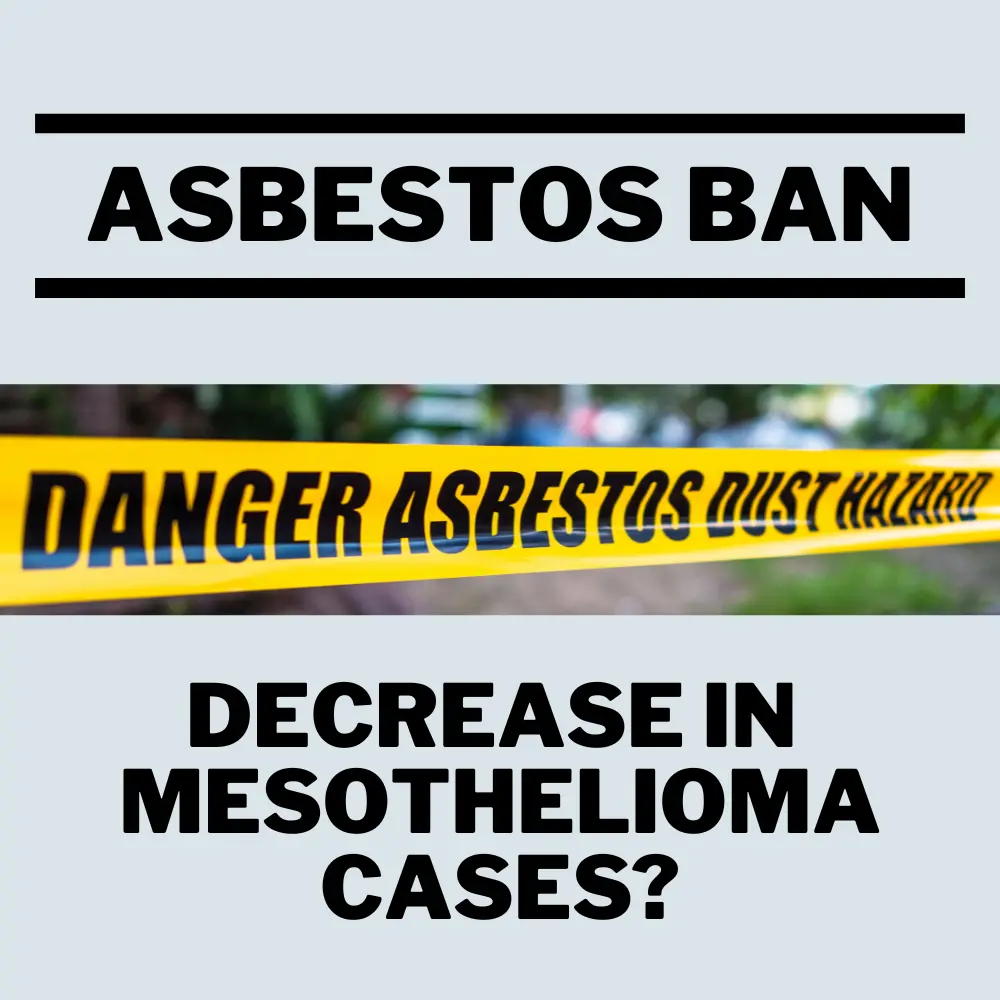Throughout the world, many countries have implemented an asbestos ban to mitigate the dangers of asbestos. Asbestos is a naturally occurring silicate material. It is also a carcinogen. Breathing in any amount of asbestos can ultimately lead to an asbestos-related disease, such as mesothelioma, asbestosis, or lung cancer. Decades ago, many countries implemented a ban on asbestos, but did this cause the number of mesothelioma cases to go down?

Earlier this year, in 2024, the United States implemented a ban on asbestos, following in the footsteps of other countries who had previously done so. More is known when it comes to the impact of the asbestos bans that other countries have implemented and the resulting number of mesothelioma cases. This is because mesothelioma has a long latency period of usually at least 10 years. However, the latency period can be as long as 50 years.
Decrease in Mesothelioma Cases?
Industrialized countries who have implemented a ban on asbestos have seen a significant decrease in the number of mesothelioma cases. In the 1980s and 90s many countries decided to ban or heavily restrict the use of asbestos within their borders. However, the US did not fully ban asbestos until this year.
It is important to note that although bans on asbestos have caused a decrease in the overall incidence of mesothelioma cases per 100,000, the number of cases is still relatively stagnant. This is because of the latency period for developing mesothelioma. Most people who are diagnosed with an asbestos-related disease will not get this diagnosis until they are in their 70s. However, if they are 70 in 2024, most of their exposure to asbestos probably took place in their 20s and 30s – 40 to 50 years earlier. This is before most of the asbestos bans were put in place.
Who is Most Likely to Get Mesothelioma?
Most people will develop mesothelioma because of the occupation that they worked. Certain jobs exposed workers to asbestos in their daily lives. Some of these occupations include but are not limited to:
- Construction workers
- Pipefitters
- Shipyard workers
- Insulators
Asbestos was widely used in these industries because it was a good insulator. These jobs required workers to work with asbestos insulation throughout their day, exposing them to high levels of the carcinogen.
Navy veterans are also at a much higher risk than the rest of the population for developing mesothelioma as Navy ships were laden with asbestos.
EPA
In March of 2024 the US officially placed a ban on the ongoing use of asbestos within the country, as announced by the Environmental Protection Agency (EPA.) In 1989 the EPA placed a ban on asbestos, but this was struck down to a large degree by a 1991 court decision.
We will not fully know the effects of the asbestos ban on mesothelioma cases in the US until decades from now. However, based on the patterns that occurred within other countries that have previously banned asbestos, we can hope that it will help people from getting asbestos-related diseases, such as mesothelioma.
Another important thing to note is that although asbestos was not fully banned in the US until this year, its uses were limited. This is because the public now knows the dangers of asbestos and big companies can no longer get away with exposing their workers to the material.
Negligence of Companies
Before the dangers of asbestos were fully known by the public, employers and manufacturers alike would routinely expose workers to asbestos, knowing of its dangers. Once people started connecting the dots there were many lawsuits. If you have been diagnosed with an asbestos-related disease you can file a lawsuit against the negligent companies, if they are still in business. Many companies that are no longer in business have put money into an asbestos trust fund. This means that you can still be compensated by filing a claim with an asbestos trust.
If you or a loved one has been diagnosed with mesothelioma or another asbestos-related disease, we are here to help. Our website offers useful information regarding types of asbestos-related diseases, hospitals to treat at in Pennsylvania, a variety of different treatment options, and more. For more information or for legal help, please call us at (800) 505-6000 or simply fill out our contact form.
Sources: